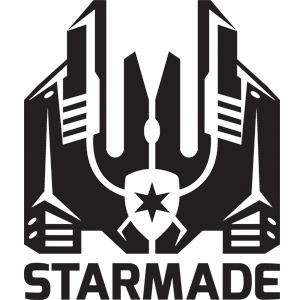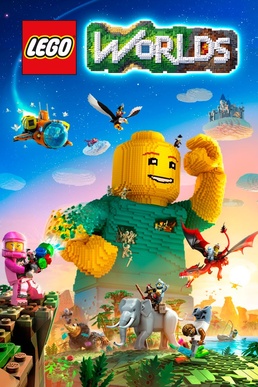Source is a 3D game engine developed by Valve. It debuted as the successor to GoldSrc in 2004 with the release of Counter-Strike: Source and Half-Life 2. Updates to Source were released in incremental versions, with the engine being succeeded by Source 2 by the late 2010s.

Steam is a video game digital distribution service and storefront by Valve. It was launched as a software client in September 2003 as a way for Valve to provide automatic updates for their games, and expanded to distributing and offering third-party game publishers' titles in late 2005. Steam offers various features, like digital rights management (DRM), game server matchmaking, anti-cheat measures, social networking and game streaming services. It provides the user with automatic game updating, saved game cloud synchronization, and community features such as friends messaging, in-game chat and a community market.

GameSpy was an American provider of online multiplayer and matchmaking middleware for video games founded in 1996 by Mark Surfas. After the release of a multiplayer server browser for the game, QSpy, Surfas licensed the software under the GameSpy brand to other video game publishers through a newly established company, GameSpy Industries, which also incorporated his Planet Network of video game news and information websites, and GameSpy.com.

The Battle for Wesnoth is a free and open-source turn-based strategy video game with a high fantasy setting, designed by Australian-American developer David White and first released in June 2003. In Wesnoth, the player attempts to build a powerful army by controlling villages and defeating enemies for experience. The game is loosely based on the Sega Genesis games Master of Monsters and Warsong.
Torque Game Engine, or TGE, is an open-source cross-platform 3D computer game engine, developed by GarageGames and actively maintained under the current versions Torque 3D as well as Torque 2D. It was originally developed by Dynamix for the 2001 first-person shooter Tribes 2. In September 2012, GarageGames released Torque 3D as open-source software under the MIT License.

CryEngine is a game engine designed by the German game developer Crytek. It has been used in all of their titles with the initial version being used in Far Cry, and continues to be updated to support new consoles and hardware for their games. It has also been used for many third-party games under Crytek's licensing scheme, including Sniper: Ghost Warrior 2 and SNOW. Warhorse Studios uses a modified version of the engine for their medieval RPG Kingdom Come: Deliverance. Ubisoft maintains an in-house, heavily modified version of CryEngine from the original Far Cry called the Dunia Engine, which is used in their later iterations of the Far Cry series.

3D GameStudio or 3DGS is a pan 3D computer game development system which allows the users to create 3D games and other virtual reality applications, and publish them royalty-free. It includes a model/terrain editor, a level editor, a script editor/debugger and comes with a big collection of textures, models and artwork, as well as a game template system that allows the creation of basic shooter games or RPGs without programming. For complex games or other applications, either the integrated programming language named Lite-C or an external development language such as Visual C++ or Borland Delphi can be used.

Alien Arena is a free, stand-alone first-person shooter computer game. Begun by COR Entertainment in 2004, the game combines a 1950s-era sci-fi atmosphere with gameplay similar to the Quake, Doom, and Unreal Tournament series. Alien Arena focuses mainly on online multiplayer action, although it does contain single-player matches against bots.

Lego Creator is a sandbox game for Microsoft Windows, which involves building with virtual Lego elements. The game has no missions, objectives, challenges, or money constraints. The game was released on 11 November 1998.

Lego Universe was a massively multiplayer online game that was available from October 2010 to January 2012. The game was developed by NetDevil and released on October 26, 2010, with an early opening for the to-be Lego "Founders", which consisted of users who pre-ordered the game. It was globally distributed by Warner Bros. Interactive Entertainment. Its release was delayed from original estimates of 2009, Teasers were released by Lego in 2007 and late November 2008 to promote the game, and also in 2009 for one last promotion. The game was available in English and German. The servers were shut down permanently on January 31, 2012, due to 'unsatisfactory revenue' from within the game's target audience.

A sandbox game is a video game with a gameplay element that provides players a great degree of creativity to interact with, usually without any predetermined goal, or alternatively with a goal that the players set for themselves. Such games may lack any objective, and are sometimes referred to as non-games or software toys. More often, sandbox games result from these creative elements being incorporated into other genres and allowing for emergent gameplay. Sandbox games are often associated with an open world concept which gives the players freedom of movement and progression in the game's world. The term "sandbox" derives from the nature of a sandbox that lets children create nearly anything they want within it.

Garry's Mod is a 2006 sandbox game developed by Facepunch Studios and published by Valve. The base game mode of Garry's Mod has no set objectives and provides the player with a world in which to freely manipulate objects. Other game modes, notably Trouble in Terrorist Town and Prop Hunt, are created by other developers as mods and are installed separately, by means such as the Steam Workshop. Garry's Mod was created by Garry Newman as a mod for Valve's Source game engine and released in December 2004, before being expanded into a standalone release that was published by Valve in November 2006. Ports of the original Windows version for Mac OS X and Linux followed in September 2010 and June 2013, respectively. As of September 2021, Garry's Mod has sold more than 20 million copies.

Keen Software House is an independent video game developing company based in Prague, Czech Republic. The company was founded by Marek Rosa in 2010.

7 Days to Die is an early access survival horror video game set in an open world developed by The Fun Pimps. It was released through Early Access on Steam for Microsoft Windows and Mac OS X on December 13, 2013, and for Linux on November 22, 2014. Versions for the PlayStation 4 and Xbox One were released in 2016 through Telltale Publishing, but are no longer being developed. In late 2022, The Fun Pimps announced that the game will be re-released on consoles targetting Xbox Series X/S and PlayStation 5. It is also available on Xbox One via Game Pass, but still unknown if it will return on PlayStation 4.

StarMade is an effectively infinite open-universe space simulation sandbox game in development by Schine for Windows, macOS, and Linux. StarMade is currently in alpha and is free to play, during alpha.

Planet Explorers is an adventure role-playing video game developed and published by Pathea Games. Development began in January 2014, existing as an early access game. The game was released on 8 November 2016 for Microsoft Windows, OS X and Linux on the Steam digital distribution platform.

Lego Worlds is a Lego-themed sandbox game developed by Traveller's Tales and published by Warner Bros. Interactive Entertainment. The game allows players to build constructions in a 3D procedurally generated world. A beta version of the game was released on 1 June 2015 on Steam Early Access. It was released on 7 March 2017 for Microsoft Windows, PlayStation 4, and Xbox One. A version for Nintendo Switch was released on 5 September 2017 in North America and 8 September 2017 in Europe.

Tabletop Simulator is an independent video game that allows players to play and create tabletop games in a multiplayer physics sandbox. Developed by Berserk Games as their first title after a successful crowdfunding campaign in February 2014, the game was released in June of the following year.

Minetest is a free and open-source sandbox video game and game creation system with focus on voxel graphics. It is written primarily in C++ and makes use of the Irrlicht Engine. Minetest provides an API for users to write their own games and mods written in Lua. It is cross-platform, being available for Linux-based systems, FreeBSD, Microsoft Windows, MacOS, and Android.

TerraTech is a construction sandbox game with action elements created and released by British developer Payload Studios on 10 August 2018 for Windows and Xbox One and four days later for PlayStation 4. A port to Nintendo Switch by Lab42 was released on 29 May 2019. The game focuses on interplanetary mining operations. Players build and operate vehicles, called Techs, and stationary bases to extract resources and fight rival prospectors.


















